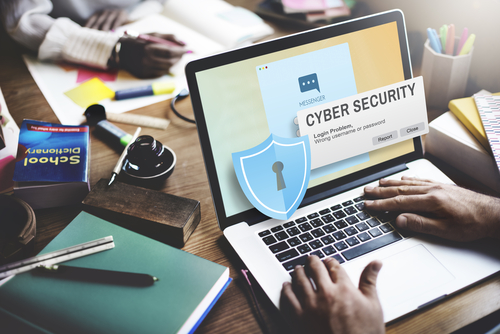Preventing crime in and around businesses is essential for the safety of employees, customers, and the overall success of the company. Here are some strategies the businesses can implement to prevent crime.
Security Measures
- Surveillance Cameras: Install security cameras inside and outside the premises to deter criminals and record any criminal activity. Check out the surveillance options National Protective Services, Inc. has to offer.
- Alarms and Monitoring Systems: Invest in alarm systems that are monitored by a security company like National Protective Services, Inc. These systems can alert law enforcement if a break-in occurs and can be used as evidence in the event of a trial.
- Access Control: Implement strict access control measures, such as key cards or biometric systems, to limit who can enter certain areas of the business.
- Security Lighting: Ensure well-lit parking and premises, especially at night, to reduce hiding spots for potential criminals.
Physical Security
- Strengthen doors and windows with quality locks and security glass.
- Use safes and vaults for storing valuable items or documents.
- Secure computers and other electronic devices to prevent data breaches.
- Hire security officers to safeguard your property. See what NPS has to offer for your security officer needs.
Employee Training

- Train employees in security awareness. They should be educated on how to recognize and respond to suspicious activity.
- Teach employees how to handle cash securely, especially if your business deals with a lot of cash transactions.
- Encourage employees to report any suspicious behavior. See something, say something.
Background Checks
- Conduct thorough background checks on all employees, especially those with access to sensitive information or assets.
Inventory Management
- Implement inventory control measures to prevent theft and fraud. Regularly audit and reconcile inventory records.
Customer Safety
- Ensure a safe and well-monitored environment for customers. This can include security personnel, emergency response plans, and clearly marked exit routes.
Neighborhood Watch and Community Engagement
- Collaborate with local neighborhood watch programs and engage with the community to establish positive relationships and promote safety. Learn more.
Cybersecurity

- Invest in robust cybersecurity measures to protect against data breaches and cybercrime. This includes firewalls, antivirus software, and employee training in cybersecurity best practices.
Vender and Supplier Due Diligence
- Vet and monitor the businesses you work with to ensure they are reputable and not involved in illegal activities.
Crisis Management Plan
- Develop and regularly update a crisis management plan that outlines how your business will respond to various types of criminal incidents or emergencies like fire, flood, and medical emergencies.
Insurance
- Consider investing in crime insurance to mitigate financial losses in case of criminal activities.
Collaboration with Law Enforcement
- Establish a relationship with local law enforcement agencies. Thay can provide advice, and you can work together to prevent and address crime in your area. Learn more.
Regular Security Audits
- Conduct regular security audits to identify weaknesses and areas for improvement in your security measures.
Employee Incentives
- Offer incentives or rewards to employees who contribute to crime prevention efforts, such as reporting suspicious activities.
Preventing crime in and around your business is an ongoing process. Regularly assess your security measures, stay informed about evolving threats, and adapt your strategies accordingly. Remember that a combination of physical security, employee training, and community engagement is often the most effective approach. Get more resources. This article is brought to you National Protective Services, Inc. Get your free, no obligation consultation from the security experts at National Protective Services, Inc. See what it means to be “Protected Like Family.”

